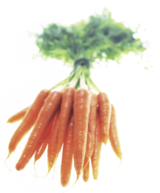For the maintenance of normal skin and vision
- Pure betacarotene in an easily digestible and stable form - the natural precursor of vitamin A
- 1 Provitamin A for the maintenance of normal skin, vision and mucous membranes
- Manufactured under Danish pharmaceutical control
BioActive TanCare
| 1 capsule contains: | *NRV% | ||
|---|---|---|---|
| Beta-carotene | 9 mg | ** | |
| or Vitamin A | 1500 µg RE | 188% |
* NRV = Nutrient Reference Value.
** NRV not established
Product Facts
Dosage
1 capsule per day or as recommended by a physician
Do not exceed recommended amount. To be taken with food.
Not suitable for vegetarians.
TanCare Pharma Nord should not be used as a subsitute for topical sunscreen products.
Nutritional supplements should not be used as a substitute for a varied diet and a healthy lifestyle.
Ingredients
Bulking Agent: Soy bean oil
Capsule: Gelatin
Vitamin: Beta-carotene
Humectant: Glycerol, purified water
Colour: Iron oxide
Storage
Room temperature and out of direct sunlight,
Keep out of reach of children.
Pregnant and lactating women and those on medication should seek professional advice prior to taking supplements.
BioActive TanCare
BioActive TanCare contains a big dose of pure beta-carotene. BioActive TanCare is manufactured in a way where betacarotene is mixed into an oil matrix that keeps it stable and increases bio-availability.
In fact, studies document that betacarotene in supplemental form has better bio-availability than the betacarotene found in fruits and vegetables.
What is betacarotene?
Betacarotene is a carotenoid. The carotenoids are divided into two main groups: carotenes and xanthophylls. Carotenes consists of hydrogen and carbon, while xanthophylls additionally contain oxygen atoms. Betacarotene belongs to a group of yellow and red plant dyes. It is betacarotene which gives carrots their orange colour. Betacarotene is fat soluble, ie. is best absorbed along with a fat. This takes place in the upper part of the small intestine. Betacarotene is also a provitamin, as it can be converted to vitamin A when the body is in need.
Betacarotene and vitamin A
Betacarotene is a good source of vegetable vitamin A, and in some parts of the world beta-carotene is virtually the population's only source of vitamin A. When betacarotene is converted to vitamin A, this will contribute to the maintenance of normal skin and mucous membranes. It would also be included in the maintenance of normal eyesight. Vitamin A has a role in the process of cell specialisation in the body and contributes to a normal immune function.
 Ingestion of food and dietary supplements with large quantities (30 mg or more) of betacarotene may provide the skin with a harmless yellowish color that some people find attractive. The colour is a result of betacarotene accumulating in the subcutaneous tissue (hypodermis), mainly on the hands and feet. This colour vanishes as soon as the beta-carotene quantities are reduced.
Ingestion of food and dietary supplements with large quantities (30 mg or more) of betacarotene may provide the skin with a harmless yellowish color that some people find attractive. The colour is a result of betacarotene accumulating in the subcutaneous tissue (hypodermis), mainly on the hands and feet. This colour vanishes as soon as the beta-carotene quantities are reduced.
Betacarotene and smokers
All dietary supplements that contain betacarotene must carry a warning for smokers, advising them against the use of product. This warning is based on research showing that large doses of betacarotene taken by heavy smokers may increase their risk of lung cancer.
There is no evidence suggesting that betacarotene supplements are harmful for non-smokers.
In addition, there is no reason to fear getting too much vitamin A from betacarotene, as the body stops converting it once its stores are saturated.
Good betacarotene sources
Betacarotene occurs naturally in several different foods, some of the best sources being:
- green vegetables
- broccoli
- carrots
- bell pepper
- squash
- apricots
The betacarotene content in vegetables may vary quite a lot, depending on factors like the soil they were cultivated in, fertilizers, wind, weather conditions, and the subsequent treatment of the crop.

